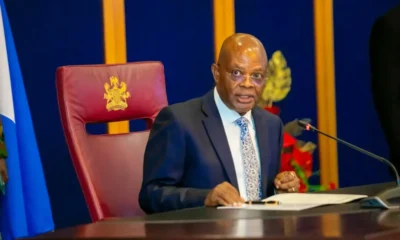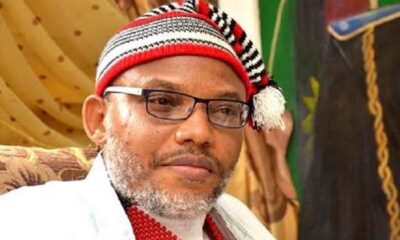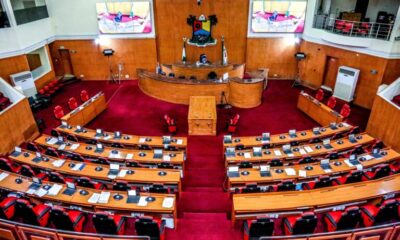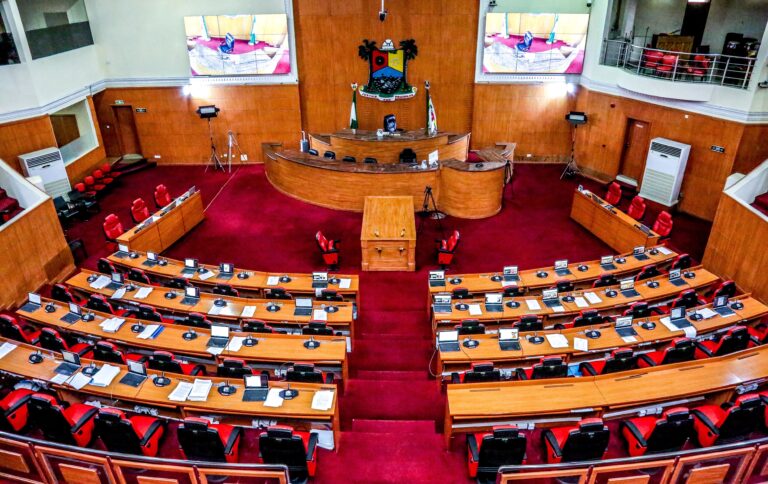The Joint Action Committee of the Non-Academic Staff Union of Educational and Associated Institutions and the Senior Staff Association of Nigerian Universities has declared that the ongoing strike is “a long-term battle” involving high-ranking university officials such as vice-chancellors, bursars, and registrars.
The JAC of SSANU and NASU began an indefinite strike on Monday due to the withholding of their salaries for four months.
Since then, activities in universities nationwide have come to a halt.
In an interview (with The Punch) on Wednesday, SSANU National President Mr. Mohammed Ibrahim confirmed that top university officials, including vice-chancellors, bursars, and registrars, have not received salaries for four months.
He emphasized that universities would remain “completely shut down” until the withheld salaries were paid.
Ibrahim further noted that compliance with the strike is widespread across all universities.
He revealed that the government has made “no invitation or any form of interference” regarding the strike.
“It is a long-term battle because this strike also involves vice-chancellors, bursars, registrars, and other senior administrators who were not paid,” he stated.
“The impact is significant, and no one from the government has reached out to us. We have withdrawn our services, and our members are resolute they will not return to work until all salaries are paid.”
According to him, compliance is “encouraging,” achieving “98 per cent adherence.”
“We have achieved 98 per cent compliance with the strike; it is a total strike if you look around. The remaining two per cent are those who held their congress today, and they will join fully tomorrow,” he explained.
Both Ibrahim and the Vice President of SSANU, Abdussobur Salaam, noted there had been no official government response on the strike.
The previous Minister of Education, Prof. Tahir Mamman, was recently relieved of his position, with Dr. Tunji Alausa set to assume the role. This transition follows President Bola Tinubu’s directive that former ministers must hand over their offices by October 30.
Prof. Mamman was among five ministers dismissed by the President after a Federal Executive Council meeting on Monday.
A primary issue awaiting the new minister, Dr. Alausa, upon taking office is the SSANU and NASU strike.
Salaam mentioned there has been “no official communication from the government regarding the ongoing strike by the union.”
“There’s no update on the ongoing strike, it continues. Some informal contacts were made between the minister of state for education and our union executives, but there’s been no real progress, just an informal appeal,” he said.
“This issue has persisted for a long time, with repeated promises that have not been fulfilled.”
“All our ultimatums have expired, and we still haven’t received any alerts. The recent invitation was just an informal call on the phone. We urge the authorities to take decisive action; we have come too far and can no longer accept empty promises. If we don’t get the alerts we won’t back down,” Salaam asserted.
A statement on Sunday, signed by SSANU National President Ibrahim and NASU General Secretary Peters Adeyemi, noted that the ultimatum given to the Federal Government regarding the withheld salaries had expired by midnight on Sunday.
The unions demand the payment of their four-month withheld salaries, improved remuneration, earned allowances, and implementation of the 2009 agreements with the government.
Additionally, on Wednesday, the National Association of Academic Technologists (NAAT) announced a nationwide protest over its withheld five-month salaries and unfulfilled agreements with the Federal Government.
NAAT plans to picket the Ministry of Finance on November 14 due to the lack of action on the President’s directive to pay withheld salaries.
The protest is scheduled to begin at midnight on November 6, 2024, with all union branches in universities, polytechnics, and colleges of education mobilizing to advance their demands.
NAAT President Ibeji Nwokoma, who declared the protest after a National Executive Council meeting in Abuja, issued a two-week ultimatum beginning on October 30, 2024, as a final opportunity for the Federal Government to address their grievances.
At a media briefing in Abuja, Nwokoma outlined longstanding demands, including payment of five and a half months of withheld salaries and full implementation of a 2009 agreement with NAAT.
He said the agreement includes key items like allowances for academic technologists, provisions for student training programs, and improved staff-to-student ratios.
NAAT urged the government to release funds for upgrading university laboratories and to address broader issues like underfunding and the increase in public universities.
The union had previously given a three-week ultimatum on September 30, 2024, which expired on October 21.
According to Nwokoma, the ultimatum concluded without acknowledgment from government agencies, including the Federal Ministries of Education and Labour and Employment.
NAAT expressed frustration at the government’s “insensitivity,” citing the President’s recent approval of withheld salaries that, according to NAAT, had yet to be implemented by the Ministry of Finance.
The NAAT president announced that within the two-week period, local branches would convene congresses to conduct a referendum on potentially escalating the protest into a full strike.
He warned that if the government failed to act by November 13, 2024, NAAT would begin an indefinite strike, potentially impacting academic schedules and crucial research activities across the higher education sector.
A prepared statement read, “It is quite unfortunate and regrettable too, that despite the President Bola Ahmed Tinubu’s waiver and approval to pay five-and-half month salaries owed NAAT members, the refusal by the Minister of Finance and Coordinating Minister of the Economy to effect this approval raises more questions than answers on the true commitment and sincerity on the part of the Federal Government in resolving the issues.”
“Several efforts were made in the past including a series of letters, protests, visits, notices of ultimatums and several Memorandum of Understanding (MoUs) freely entered between NAAT and Federal Government (i.e MOU of 2017, 2020, 2021 and 2022) as the result of efforts by Federal Ministry of Labour and Employment as conciliator of the Federal Government but all to no avail.”
“Consequent upon the above, the union, having reviewed the situation critically, decided to give the Federal Government an additional two (2) weeks ultimatum, with effect from 30th of October 2024.”
“Meanwhile, the National Executive Council has directed all her branches in universities, polytechnics and colleges of education to hold a nationwide protest to drive home our demands.”
“Within the two-week ultimatum, branches have been directed to hold congresses and conduct a referendum to decide if the union will proceed on strike once the 14-day ultimatum expires on the 13th of November 2024.”
“If at the end of the 14-day ultimatum no positive response from the government, the union will embark on a national protest which will culminate into a total and indefinite strike without recourse to government.”
“It is hoped that the government will avail itself of this window to resolve the issues on the ground, with the view to averting any industrial action.”
“This decision is in line with our concern for the tertiary education system so as not to disrupt the academic calendar which will eventually affect research and practical teaching; laboratory, workshop, farm and studio practices and the attendant monumental loss of resources.”

 BIG STORY2 days ago
BIG STORY2 days ago
 BIG STORY1 day ago
BIG STORY1 day ago
 BIG STORY23 hours ago
BIG STORY23 hours ago
 BIG STORY2 days ago
BIG STORY2 days ago
 BIG STORY5 days ago
BIG STORY5 days ago
 BIG STORY1 day ago
BIG STORY1 day ago
 BIG STORY2 days ago
BIG STORY2 days ago
 BIG STORY2 days ago
BIG STORY2 days ago
























